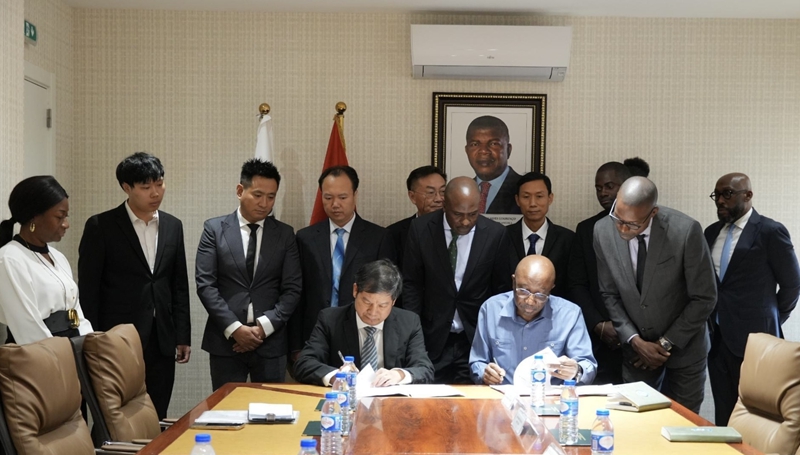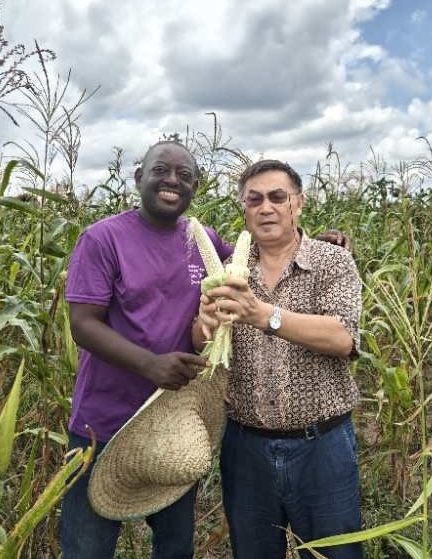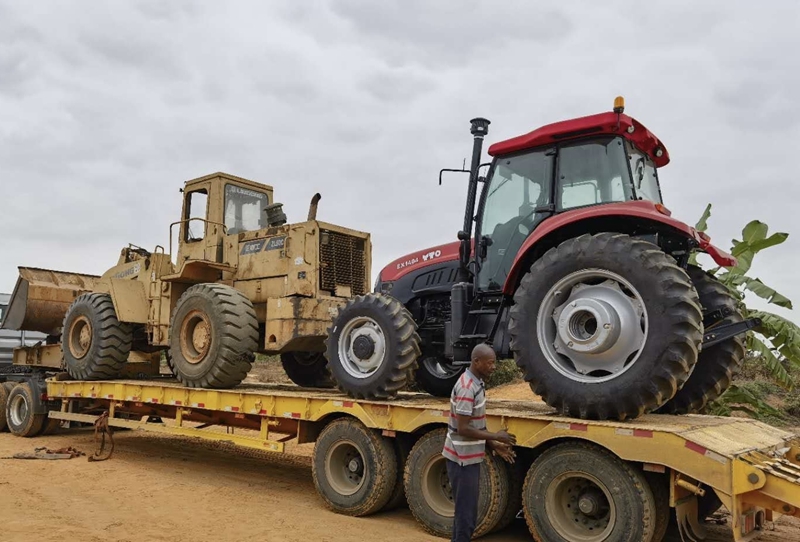by Wu Siya
EZHOU, Sept. 3 (China Economic Net)- The scorching August sun enveloped the African land. On a piece of fertile land in Angola that had not been carefully cultivated, Chinese agricultural expert Prof. Yuan Guobao, Advisor to Hubei Provincial Sino-Africa Business Council, lowered his head to carefully observed the growth of local vegetation.
“The Business Council has signed a memorandum of understanding on a Sino-Angolan cooperation project to reclaim 5,000 hectares of agricultural land,” Yuan told China Economic Net in an exclusive interview.

The signing ceremony [Photo provided to CEN]
For a long time, under the framework of the Belt and Road Initiative, a set of Chinese experts have taken root in Africa, working day and night to enrich the “food bags” and “vegetable baskets” of African people. “We will choose the right crop varieties according to the most urgent local needs. Because Angola, as a food-deficient country, 60% of the country’s food is imported, so we must first widely sow rice, corn and wheat, namely the three major staple foods, as well as soybean, which are a key cash crops and can also improve soil, provide protein, and increase nutrients.” Yuan added.
It is not the first step taken by Chinese agricultural workers in Angola. In Malanje Province, agricultural production is being carried out in an orderly manner at the “Shennong Farm” (Shennong, Patron of Agriculture in ancient Chinese mythology) established by agricultural leaders from Hubei Province, China.
“Our investigation showed that the temperature here is as high as 35 degrees and as low as 8 degrees, which means that the average temperature throughout the year is around 25 degrees, namely the most suitable range for crop growth. In addition, the climate here is quite similar to that of Hubei. That is to say in addition to basic food crops, this farm could also grow subtropical fruits, including pears, peaches, apricots, kiwis and grapes, all of which are all within our programme,” Yuan told the reporter.

Yuan Guobao inspected the growth of local corns in Angola [Photo provided to CEN]
In order to truly localize and innovate China's advanced agricultural technology in Africa, a Shennong Research Institute will be established to study agricultural technology, including the local application of agricultural machinery, fertilizers, pesticides, etc. The collection and protection of local wild crop germplasm resources, such as sorghum, castor, and cotton, is also an important part of the research. Chinese experts will establish a seed resource bank in the institute to collect and preserve local excellent germplasm and carry out breeding.
“Seeds have always been the chips of agriculture. If Africa’s excellent native germplasm and China’s high-yield and disease-resistant germplasm could be hybridized and improved, better varieties will surely be created. This is also a great practice for China and Africa to work together for development as a community with a shared future for mankind,” Yuan mentioned.
By making market research, Yuan found that the prices of rice, corn and wheat in Angola are about 30% higher than those in China. Therefore, the country is eager to expand its food production, thus Chinese companies have great potential in local collaboration. “By building a platform, we’re going to invite domestic agricultural production cooperatives that are willing to go to the local area to show their skills.”
“For decades, the deepening collaboration between China and Africa has been widely recognized and praised by African countries and the international community. The next step is to continue to deepen and strengthen such a collaboration, being as our top priority.”

Advanced tractors purchased from China arrived at Shennong Farm [Photo provided to CEN]
Yuan introduced that first of all, China’s advanced technologies such as high-end breeding, formula fertilization, pollution-free pesticides are urgently needed to be widely used in Africa, so it is very indispensable to establish Luban Workshops in local farms to train farmers. It ls reported that since the establishment of the first Luban Workshop in Africa, the Djibouti Luban Workshop in March 2019, China has built 17 Luban Workshops in 15 African countries including Egypt, South Africa and Kenya. Secondly, China should jointly establish a research institute with representative African countries. In addition, China needs to sign comprehensive and integrated agreements with local governments. “Agricultural products produced under such agreements, in addition to meeting Africa’s own needs first, could also be exported to China, achieving a true win-win situation.”
(Editor: fubo )


